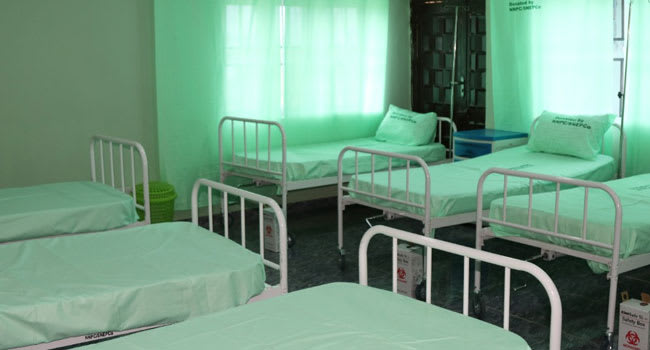
FG Approves Policy To Address Health Workers’ Migration, Bring Back ‘Japa’ Doctors
The Federal Government has approved a new National Policy on Health Workforce Migration.
The country has been plagued with doctors and other allied medical professionals leaving for greener pastures in the United Kingdom, USA and major European countries.
In March, the Coordinating Minister of Health and Social Welfare, Prof Ali Pate, disclosed that in the last five years, the country lost about 15,000 to 16,000 doctors to the Japa syndrome while about 17,000 had been transferred.
Pate has also indicated that of the 300,000 health professionals in Nigeria, an assessment showed 85,000 to 90,000 were registered Nigerian doctors which was a big concern to the health sector.
“There are about 300,000 health professionals working in Nigeria today in all cadres. I am talking about doctors, nurses, midwives, pharmacists, laboratory scientists and others. We did an assessment and discovered we have 85,000 to 90,000 registered Nigerian doctors.”
In a post on X, on Monday the minister reaffirmed the government’s commitment to tackling the challenges surrounding healthcare human resources in the country.
He said President Bola Tinubu presided over the Federal Executive Council meeting at the Presidential Villa in Abuja, where the policy was approved.
According to the minister, this policy is more than just a response to the ongoing exodus of healthcare professionals; it’s a comprehensive strategy to manage, harness, and reverse health worker migration.
“It envisions a thriving workforce that is well-supported, adequately rewarded, and optimally utilized to meet the healthcare needs of all Nigerians.”
The goal of the new policy is to encourage the return and reintegration of Nigerian health professionals from the diaspora.
The push factors, motivating the exodus of these doctors according to the Nigerian Medical Association back in 2021 are inadequate equipment, worsening insecurity, poor working conditions, and poor salary structure.
Ali Pate is insistent that these issues will be a thing of the past as the policy aims to streamline registration processes and provide incentives to attract skilled professionals back to Nigeria, thereby strengthening the healthcare system.
“By establishing streamlined registration processes and providing attractive incentives, the policy not only encourages the return of our talented professionals but actively reintegrates them into our health system. This approach leverages the expertise of our diaspora to bridge gaps within the health sector.
The minister also stated that the rural areas would receive much-needed attention with the policy with regular monitoring of the working conditions.
”Central to this vision is the Nigeria Human Health Resource Program, which sets a framework for regular reviews of working conditions, ensuring that health workers, especially in rural and underserved areas, receive the recognition and rewards they deserve. By fostering an environment conducive to professional growth and stability, the policy aims to retain top talent within Nigeria.”
“Also, the policy champions reciprocal agreements with other nations to ensure that the exchange of health workers benefits Nigeria. These bilateral and multilateral agreements are designed to protect national interests while respecting the rights and aspirations of our healthcare professionals. We call on recipient countries to implement a 1:1 match—training one worker to replace every publicly trained Nigerian worker they receive.
“Recognizing the importance of work-life balance, the policy includes provisions for routine health checks, mental well-being support, and reasonable working hours, especially for younger doctors. These measures aim to create a supportive work environment, reducing burnout and enhancing job satisfaction,” the minister stated.

